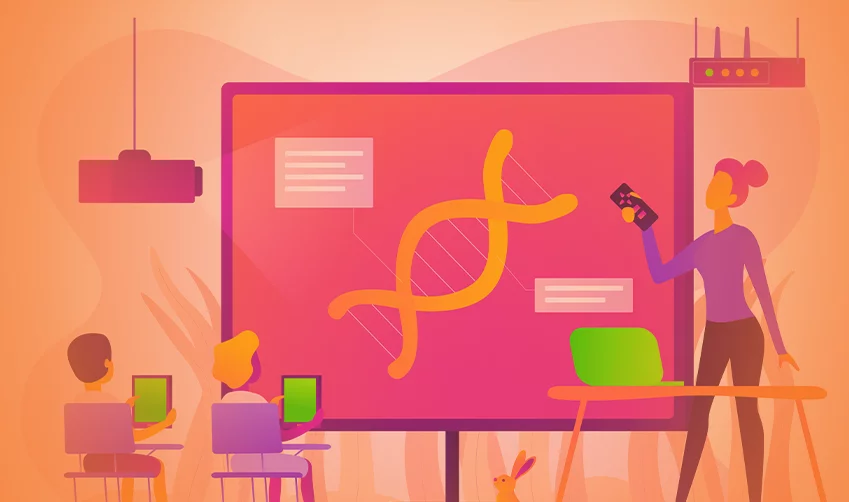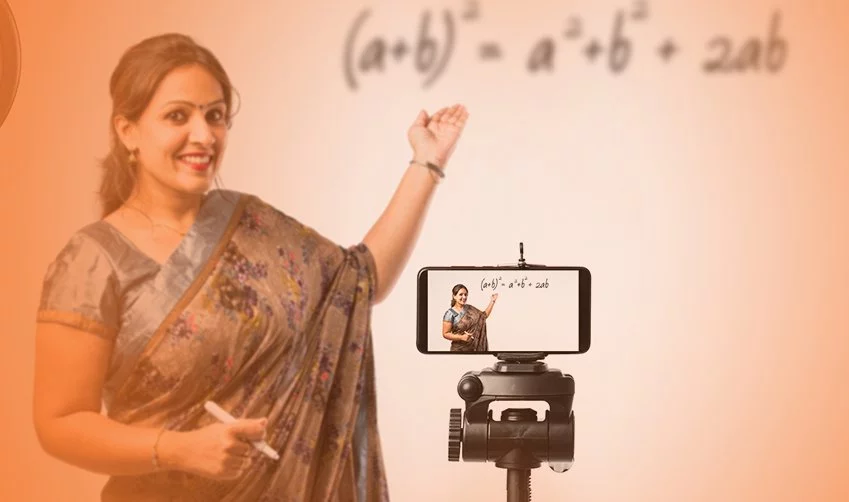7 Common Problems Faced by Teachers in India
-2.png)
Give Your School The Lead Advantage
Although teaching is one of the greatest professions that bring changes to society, nation, and the world as a whole, it is yet to receive the respect it deserves. The occupation that produces leaders, entrepreneurs, social activists, and professionals is often downplayed by many.
We can see people praise government-aided teaching jobs for the stability and pay it offers. However, teaching in private institutions is not glorified even for the said parameters. Teachers in India face many challenges that should be addressed and offered solutions. But we don’t talk about those unless it is National Teachers’ Day.
In this blog, we are going to talk about the seven most common problems faced by teachers in India.
1. Professional Status
The fact that students habitually aspire to be everything from doctors and engineers to pilots and models but a teacher says a lot about the status of this role.
Contrarily, in countries like South Korea and Finland, only the top 10 percent of merit holders are considered for this role. Although, the bar of scores should not be set so high for becoming a teacher. But there should be some kind of screening beyond B.Ed and M.Ed to select individuals who have the best skills for teaching.
The general perception that anyone can become a teacher as it doesn’t require a specific skill set and is not a primary career choice should be changed. This mindset is one of the main teacher problems that clearly reflects the status teachers hold in our country. Because this is not a highly regarded profession and people assume that anybody and everybody can become a teacher, they don’t consider it to be phenomenal.
2. Lack of Planning Time
The majority of the highly-potential teachers would attest to the fact that they don’t get sufficient time to plan and implement their ideas. Teachers face a lot of pressure from management, administration, and parents for the completion of the course. When you ask a teacher about the problems they face, you will get to know how the time they get to plan their lessons is not enough.
The units are pre-decided for formative and summative assessments. Alongside, there is always one thing or other going on during the session. Sometimes an event or a celebration requires students to rehearse daily and teachers to be involved in non-academic activities. Such distractions often delay the lesson deliveries.
Teachers often end up finishing the chapters hurriedly instead of applying innovative teaching methodologies to improve the quality of education. This kind of chaos and mismanagement can be avoided by planning sessions well in advance and assigning duties to non-teaching staff members or hiring specific professionals.
3. Non-Teaching Tasks
It brings us to the point of non-teaching tasks that are often handed over to the teachers in schools. They are loaded with surveys, documentation, typing exam papers, scorecard preparations, admissions, and much more. These jobs can be performed by administrative staff equally efficiently, and teachers would get ample time to prepare for their lessons.
The time post-final exams and at the end of summer vacations is mostly used by schools for admissions. If teachers utilize this time to work on developing and assembling essentials for developing innovative teaching techniques, they can deliver education more effectively throughout the academic year.
4. Inefficient Professional Training
Every organization conducts timely training sessions for its employees. But for some reason, teachers are not provided with this kind of learning opportunity. The problems of teacher education in India are real.
Every profession evolves with advancements in technology and trends. Hence, there should always be regular training programs for teachers to help them stay updated and upgrade their teaching styles accordingly.
But unfortunately, this is not a common trend in India. Teachers in most parts of our country have limited access to on-job learning programs. Even during the pandemic, when everyone was forced to work from home, many teachers were recording lectures for the first time. Especially elderly teachers suffered a lot due to this sudden shift.
If our system had already integrated teacher learning programs, this transition would have been way smoother for all the generations of educators. The world is continuously advancing with innovative teaching methodologies, some of which are not even known to teachers in India.
This inefficiency of professional training limits the teachers in this nation from developing additional skills and matching international standards.
5. Challenges in The Classroom
There can be a long list of pointers in response to what challenges teachers face in the classroom. Teachers don’t have to deal only with the ordeal of the outward challenges of this profession. There are plenty of issues that need to be managed inside the classroom as well.
Students often become the naughtiest creatures when they are not willing to study. There are many teacher problems in the classroom, to name a few:
- Apathy
- Lack of students’ participation
- Late homework submissions
- Misbehavior
- Unnecessary cellphone usage
6. Work-Life Balance
The problems of teacher education do not end here. Striking a proper work-life balance has become a real struggle for teachers, especially after the pandemic. Government teachers were even assigned COVID-19 duties in several parts of India along with the responsibility to deliver online education.
After a stressful day, teachers can be seen checking assignments or assessments as they don’t get sufficient time during their shift at the school. Besides, those new to the online learning modules have been spending too much time recording lectures or understanding technology to deliver seamless lessons to their students on time.
7. Lack of clarity about career growth
Most teachers don’t get enough clarity about what their career path will look like if they continue in this profession. Not all teachers can be promoted, however a clear path based on merit can be established by schools. Teachers can be made aware of what exactly is expected from them to ensure they are motivated and clear about objectives.
Conclusion
Although there are many more challenges that teachers struggle with daily in India, the above are the ones that should be addressed and resolved on priority. Our education system needs a plan. Teachers are the root of an advanced or backward nation. When we take care of the roots, we will definitely reap the best fruits.
And no, you can’t wait for the policy-makers to bring the change. Every individual can bring some changes on their very own level. And the change can begin with you.
At LEAD Powered Schools, our teachers get end-to-end support to meet all the common problems. Find out why 25,000+ teachers in India love LEAD. Know more





